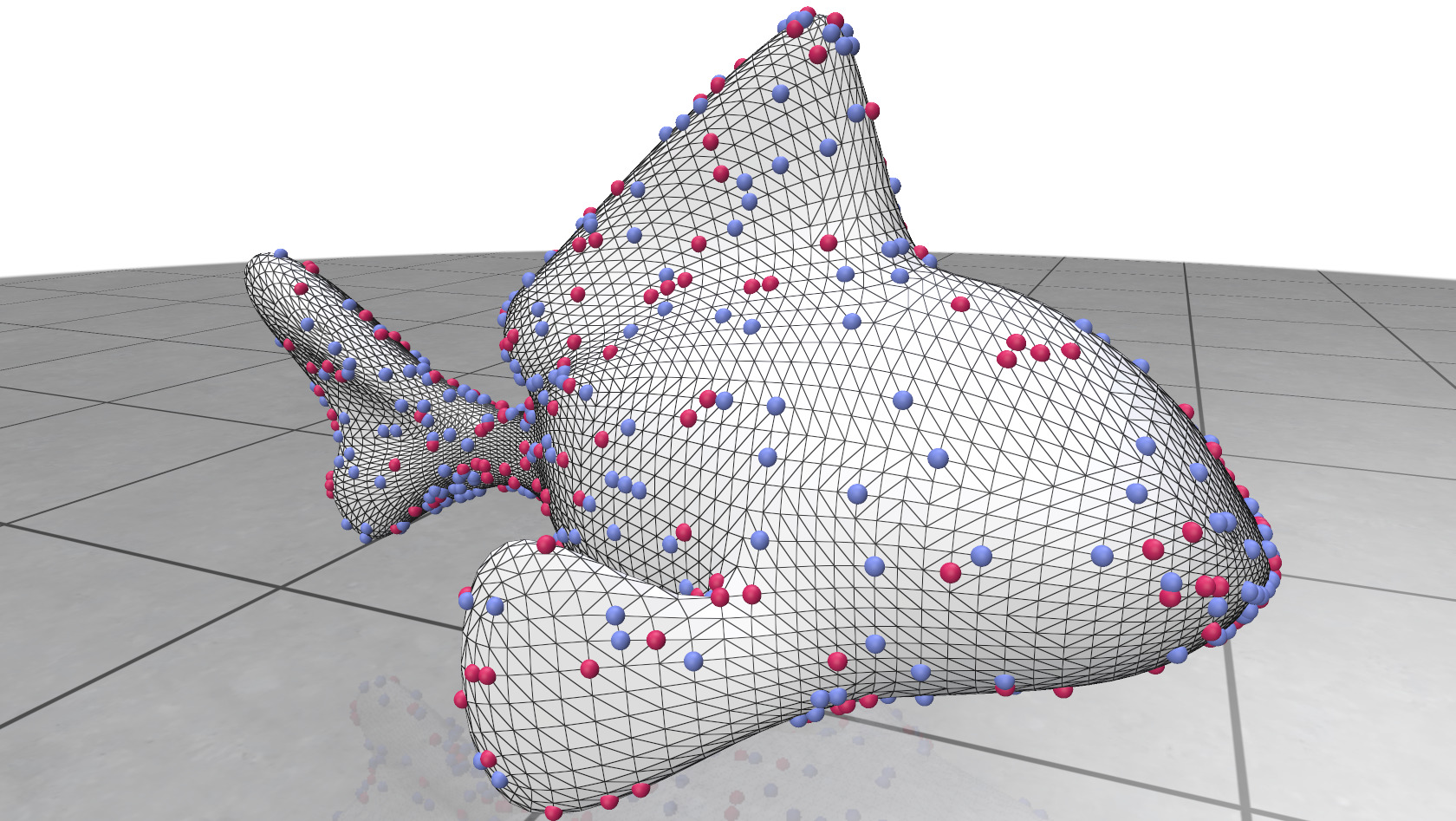Count Quantities
Count quantities store integers defined at just a few elements of a mesh, rather than at every element. These useful for visualizing special vertices or faces, e.g., singularities of a vector field.

Example:
#include "polyscope/polyscope.h"
#include "polyscope/surface_mesh.h"
// Generate a random count quantity
std::vector<std::pair<size_t, int>> vCount;
for (size_t iV = 0; iV < nVertices; iV++) {
if (polyscope::randomUnit() > 0.95) {
vCount.push_back(std::make_pair(iV, 2));
}
}
// Add the count quantity
polyscope::getSurfaceMesh(/*mesh name */)->addVertexCountQuantity("sample count", vCount);
No adaptors here
Unlike almost all other quantity adders in Polyscope, these do not use the data adaptors, and must be explicitly given a std::vector<>.
SurfaceVertexCountQuantity* SurfaceMesh::addVertexCountQuantity(std::string name, const std::vector<std::pair<size_t, int>>& values)
Add a count quantity defined at vertices.
valuesis a list of pairs, where the first entry of each pair is a vertex index, and the second is an integer value at that vertex. This list may be any length.
SurfaceFaceCountQuantity* SurfaceMesh::addFaceCountQuantity(std::string name, const std::vector<std::pair<size_t, int>>& values)
Add a count quantity defined at faces.
valuesis a list of pairs, where the first entry of each pair is a face index, and the second is an integer value at that vertex. This list may be any length.
SurfaceVertexIsolatedScalarQuantity* SurfaceMesh::addVertexIsolatedScalarQuantity(std::string name, const std::vector<std::pair<size_t, double>>& values)
Add an isolated quantity defined at vertices. This is very similar to the SurfaceVertexCountQuantity, except the data is real-valued rather than integer-valued.
valuesis a list of pairs, where the first entry of each pair is a vertex index, and the second is an real value at that vertex. This list may be any length.
Options
| Parameter | Meaning | Getter | Setter | Persistent? |
|---|---|---|---|---|
| enabled | is the quantity enabled? | bool isEnabled() |
setEnabled(bool newVal) |
yes |
| color map | the color map to use | std::string getColorMap() |
setColorMap(std::string newMap) |
yes |
| point radius | radius of points | double getPointRadius() |
setPointRadius(double newVal, bool isRelative) |
yes |
(all setters return this to support chaining. setEnabled() returns generic quantity, so chain it last)